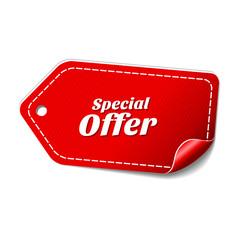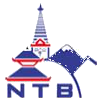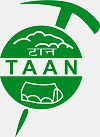Well, it is easy. Tribhuvan International Airport is the only international airport and it is located in the capital city of Kathmandu. There are more than 30 airlines including Thai Airways, Nepal Airlines, Air India, Singapore Airlines, Dragon Air, Cathay Pacific Airlines, Indian Airlines, Korean Air, Biman Bangladesh, Jet Airways, Pakistan Airlines, Qatar Airlines, Gulf Air, Etihad Air, with regular flights to Nepal. TIA also has direct service to Hong Kong, Bangkok, Singapore, Kuala-Lumpur, Seoul, Dhaka, Delhi, Mumbai, Kolkata, Varanasi, and Abu Dhabi.
Nepal is a Himalayan country rich with picturesque mountains, ancient temples and some of the best walking trails on Earth. It's a small country, but filled with splendor and exotic culture. The people of Nepal are as diverse as their country and represent distinct values and beliefs. Though they speak a variety of tongues and practice different religions, they are the friendliest people that you will ever meet.
It is difficult to replace the sense of mystery and intrigue that Nepal historically has on western travelers. There are endless surprises throughout the country. The Kathmandu Valley offers a unique spiritual atmosphere with thousands of Hindu temples, Buddhist stupas, stunning architecture and rich pageantry yet the urban experience holds the allure and appeal of a large city.
But the real adventure begins beyond Kathmandu. Everyone should experience a truly personal and intimate connection with the highest mountains in the world that only trekking delivers. Regardless of how you travel; by air from your home town, or overland from India or Tibet, come for an expedition in the mountains and deep valleys, lush forests, snow trails, terraced fields and above all the most hospitable people.
BEFORE YOU LEAVE HOME: A CHECKLIST
- Renew your passport, if it has less than 6 months validity, and obtain a Single Entry Visa Tourist Visa. They are available on arrival. Regulations change frequently- please consult your nearest Nepal Embassy/Consulate
- Take out a comprehensive Personal Travel Insurance Policy including helicopter evacuation. This is a condition of accepting you on the trip. See COVER YOURSELF.
Recommended Travel Insurance Companies for your kind Knowledge
FOR AUSTRALIA & NEW ZEALAND
- Travel Insurance Directhttp://www.travelinsurancedirect.com.au/www.tid.com.auPh: +61 2 9234 3123Email: claims@tid.com.au / help@tid.com.au
- Cover Travel Insurancehttp://www.1cover.com.au/Email: travel@1cover.com.auWithin Australia: 1300 192 021From overseas: (+) 61 2 9235 0222
- International SOS
http://www.internationalsos.com/en/ - Cover More Travel Insurance
http://www.covermore.com.au/
FOR USA & CANADA
- World Nomad- (Keep Travelling Safely)http://www.worldnomads.com/
- Mondial Assistancewww.mondial-assistance.ca
- TIC Travel Insurance Coordinators Ltd.www.travelinsurance.ca
- Travel Guard>http://www.travelguard.com/1.866.648.8422 (Canada)1.800.826.1300 (USA)
FOR UNITED KINGDOM
- British Mountaineering Council-BMC INSURANCEhttp://www.thebmc.co.uk/Ph: 44(0) 161 445 6111
- First Assist Services Limited Englandhttp://firstassist.co.ukPh: 01455 251155Fax: +44 (0)1455 254001
FOR EUROPE
- Europ Assistancehttp://www.europ-assistance.comPh: +33 (0) 1 58 34 23 00
- IHI Bupahttp://www.ihi.com/Email: emergency@ihi.comPh: +45 33 15 33 00
FOR POLAND
- SIGNAL IDUNA UBEZPIECZENIAhttp://www.signal-iduna.pl/Ph: +48 22 50565 08
FOR SINGAPORE & MALAYSIA
- World Nomad- (Keep Travelling Safely)http://www.worldnomads.com/
- MSIG-MSIG ASSISTwww.msig.com.myPh: +603 2053 5898
NOTE:
Above suggested insurance companies are just for recommendation for your kind knowledge which is recommended by our previous travelers. You could review their update insurance policy by contacting them directly and if you buy the insurance with them, you are responsible to check the policy and coverage by yourself, we do not take any responsibility on any of their policies and the coverage.
- Send your complete Medical form. Only your Trek Leader/guide has access to this, but for your own safety, and insurance purposes, you must declare any pre-existing medical condition.
- Send us details of any special dietary needs. If you are used to specialty foods, bring a supply.
- They aren't compulsory, but we strongly advise you to have Hepatitis, Tetanus, Meningococcal, Meningitis and Typhoid shots-ideally, from a traveler's medical centre, which can give you all the current information and advice.
- Get anti- malaria tablets/injection for Chitwan National Park.
- Visit the dentist. Kathmandu has world- class dentists, but a toothache could ruin your trek.
- Practice walking up and down stairs in your trekking boot. Make sure your trekking boot is not new to your feet at the time of trekking.
- Update Nepal News.
If you have time please read about Nepal, consult our website or talk to people who have travelled with us. It will enhance your confidence.
SPEAKING NEPALI
The national language is A Nepali, written in Devanagari script, but many Nepalese speak English like a second language. Your Guide, Sardar and other staff speak English. Nepali is relatively simple, so it is worth buying a small phrase book for reference. Most Nepalese will only be too happy to help you and it makes an excellent ice breaker with the non-English speaking members of your crew.
KEEPING THINGS SAFE
While you are trekking, we keep your passport and air ticket in our safe or you keep them with your close friends safe. Please also deposit valuables you don’t want to take in trekking, with Nepal Trek Ways office or in the Hotels locker room keep the key with you. A money belt is the best way to keep your cash with you all the time, especially at night. Don’t leave anything unattended, anytime, anywhere. Generally, theft is not a problem in Nepal but in a country where wages are low, your possessions have incredible value. A Duty free camera could represent three years local salary, so leaving it unattended is a strong temptation.
TAKING YOUR IMAGES HOME
Nepal is a photographer's paradise, so your gear will have plenty of use. What you bring depends on interest, budget and how much you want to carry, but our suggestions are;* a 28-90 mm zoom lens as a minimum;* a 100-200/300mm,zoom telephoto lens, ,* a 19/20mm,ultra-wide angles lens, for sweeping mountain panoramas* a Mirror 500mm lens for ultra-close-ups.*Circular polarizing filters to cut mountain glare and bring out the deep blue of the sky.* A flash unit.* A camera cleaning kit(essential)* A small tripod* Enough space, more is better than less!*Spare batteries; they ‘die’ in the cold
*64 or 100 ASA film is ideal for inside and the subdued lighting and the jungle in Chitwan.
Kathmandu has numerous photographic shops, and your Guide will show you the good ones in Thamel where the stock turnover reliable and much cheaper than home, but photos weigh a lot more than film, if you are worried about excess baggage! Bus drivers and in the rafting the captains will be happy to stop for photographs, if asked.
STAYING HEALTHY AND HAPPY
Kathmandu has the World class medical services, your hotel will have a doctor on 24 hour call, Nepal Trek Ways’ Guides are trained in mountain First-aid and carry a comprehensive First-Aid kit on every trek. But you will be in areas with health services and Guides are not doctors or mind readers! Please inform your Guide of any existing medical condition and/or prescription drugs you’re taking before the Trek and don’t take so much as an aspirin at altitude without informing/consulting him/her. Stomach problems are the biggest concern for visitors, and rightly so. Our hygiene standards are very high, so all food and drink supplied by Nepal Trek Ways is safe. Still, make sure your water bottle is properly sealed and that the lip is clean. Use your own mug in tea houses. Alcohol and altitude don’t mix, so please exercise moderation. Keeping warm is one of the keys to staying healthy at altitude. So, change into warmer, dry clothes as soon as you stop for the day. Wear layers to bed and to start in the morning, so that you can “peel off’ as you warm up. Wear a ‘beanie’ and scarf at night as most body heat is lost through the head and neck. Wear bed socks. Take two pairs of gloves/mittens on high altitude treks, to always have a dry pair. If it looks like rain, put on your rain gear in advance, rather than get wet and cold. Thermarests are heaven on high altitude and winter treks.
Please bring a personal First Aid Kit containing:
- Full Block Out Sunscreen.
- Lip salve
- Moisturiser
- Band aids
- Antiseptic cream
- Insect repellent
- Cold/flu suppressant
- Throat Lozenges
- Aspirin or Equivalent
- Muscle rub * Nail scissors
- 100 mm(4 inch) elastic bandages
- Elastic knee/ankle supports, if needed
- Wet Wipes.
Your doctor will probably advise more, you won't need it.
Consider the following as well
A. Maps
A wide range of maps are available from booksellers in Kathmandu. However all clients are supplied with trek & city maps on arrival in Kathmandu. Pilgrims Book Shop, Mandala Book stores are internationally recognized book stores in Thamel, Kathmandu.
B. Money to Bring With you
US dollars in travelers cheques, for increased security and convenience, preferably from major companies such as Visa or American Express. Local bank travelers cheques will possibly not be recognized or changed. Have more smaller denominations(less than US$ 100), so that you won’t be left excessive amounts of Rupees. It is very hard to advise on the correct amount to bring as everyone has different budget and different ideas of what souvenirs are going to be bought. However, as a general guide, we suggest.
IN Kathmandu:
Excellent accommodation is based on a Bed and Breakfast basis so allow for lunches and dinners, generally this is about 500 to 800 Rupees(US$ 6 TO 9) per meal in the tourist area Thamel. All the major hotels have Western style restaurants, but tend to be more expensive.
On Trek :
You will probably only spend between 300 to 600(US$ 4 to 7) rupees per day for soft drinks, chocolates, water, etc., and on some days nothing. If you drink and smoke you will have to add a little extra more.
Rafting, Chitwan Jungle Safari(If optioned):
All meals are included, and activities at Chitwan, so you only need money for drinks, souvenirs and any desired extra activities. Arrange of Jungle souvenirs is available in Chitwan. Allow up to US$ 15 for these, if you wish.












